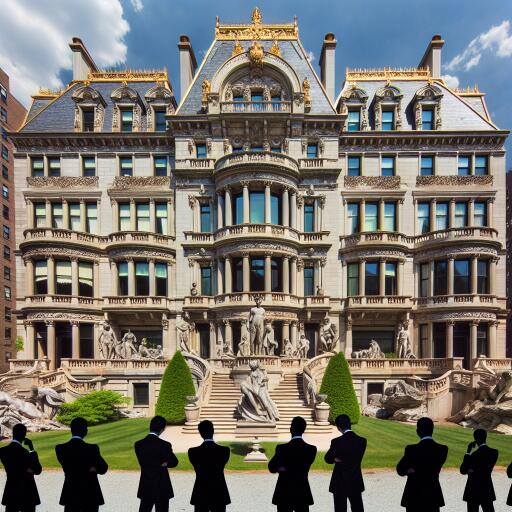One New York Mansion Is Too Expensive To Save And Too Expensive To Demolish
The Hudson Valley, once a beacon of luxury and opulence, is home to numerous mansions that have stood the test of time. These grand homes, ranging from Presidential estates to magnate retreats, once served as symbols of wealth and power. However, amid these historical treasures lies a mansion whose fate has been as complex as its history: Rhinebeck’s Wyndcliffe Mansion.
Wyndcliffe Mansion, a structure that has shifted from a symbol of affluence to an abandoned enigma over the years, stands as a testament to how cost can dictate the very existence of historical buildings. This 24-room manor, erected in 1853 for Elizabeth Jones, a well-heeled New York socialite, has slowly deteriorated into a shell of its former self, despite once being the pinnacle of luxury and architectural beauty.
Designed by George Veitch in a style reminiscent of Gothic architecture, the mansion was a masterpiece of its time. American author Edith Wharton, a relative of Elizabeth Jones, spent her younger years within its walls. Despite her later critiques of its design, Wharton’s accounts have played a crucial role in highlighting Wyndcliffe’s significance in American history.
Wharton’s observations, despite her personal distaste for the mansion’s aesthetics, underscore its historical importance. She once described Wyndcliffe in terms that alluded to both its grandeur and the overwhelming impression it made on visitors. This mansion was not only a residence but a landmark that spurred the emergence of numerous other grand estates in the Hudson Valley, breeding the competitive spirit encapsulated in the phrase, “keeping up with the Joneses.”
Following Elizabeth Jones’s death in 1876 and subsequent changes in ownership, Wyndcliffe’s splendor began to fade. By the mid-20th century, the mansion had been abandoned, a victim of the financial turmoil of the Great Depression and latter years. In 2003, attempts were made to resurrect the estate, but financial difficulties led to its sale at a bankruptcy auction for less than the renovation costs.
The potential demolition of Wyndcliffe has drawn mixed emotions from the local community. While some decry the nuisance of trespassers attracted to the site, others express a bittersweet sentiment towards the mansion’s looming fate. James Howell, a former neighbor, encapsulated this feeling by acknowledging the necessity of demolition but mourning the loss of such a historic structure.
Despite a demolition application filed in 2017, the mansion remains standing, a victim of its prohibitive demolition costs. Estimated at $75,000 for the demolition alone, with an additional $1 million in liability insurance required, the financial barriers to removing Wyndcliffe are as daunting as those to restoring it.
The future of Wyndcliffe Mansion remains uncertain, caught in a limbo between preservation and destruction. What is clear, however, is that the legacy of trying to “keep up with the Joneses” has left a unique imprint on the Hudson Valley, with Wyndcliffe Mansion as its enduring symbol.
As we ponder the fate of Wyndcliffe, it serves as a poignant reminder of the complexities surrounding historic preservation and the intricate dance between the past and present. Only time will tell what lies in store for this once-majestic manor.
